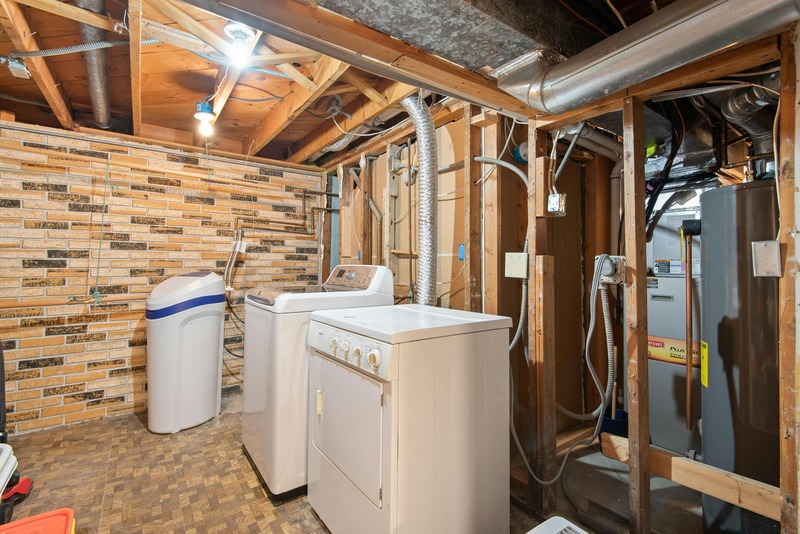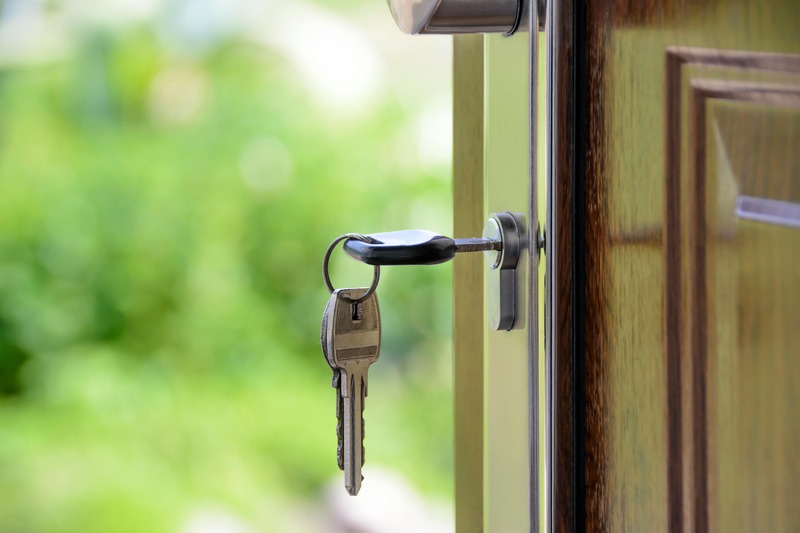
Budget Billing for Utilities: How Does it Work and Is It Right for You?
If you’re tired of unpredictable electricity or gas bills, budget billing might be the solution you need. It evens out your monthly payments, making your expenses more predictable. But is it right for you? Let’s break it down.
In this article:
- What is Budget Billing?
- Benefits of Budget Billing
- Eligibility and Enrollment
- Managing Seasonal Spikes in Monthly Bills
- Viewing Actual Usage and Reconciliation
- Choosing the Right Budget Billing Program
- Managing Your Monthly Bills with Budget Billing
- Cancellation and True-Up
- Is Budget Billing Right for You?
- Pros and Cons of Budget Billing Programs
- Should You Sign Up for Budget Billing?
- Recent Posts
Keeping up with utility bills can be a headache—especially when your energy costs swing wildly with the seasons. One month, your bill is manageable, and the next, it feels like a second rent payment. That’s where budget billing comes in.
Budget billing customers need to meet certain eligibility requirements, such as maintaining good financial standing over the previous year. This ensures that they can benefit from the stability that budget billing offers.
If you’re tired of unpredictable electricity or gas bills, budget billing might be the solution you need. It evens out your monthly payments, making your expenses more predictable. But is it right for you? Let’s break it down.
What is Budget Billing?
Definition and Purpose
Budget billing is a payment plan offered by utility companies that smooths out your energy costs by setting a fixed monthly payment. Instead of paying the full amount based on your actual usage each month (which can spike in extreme weather), budget billing spreads out your annual energy costs evenly over 12 months.
This program does not reduce your total energy cost—it simply makes payments more predictable. Your yearly energy use still determines what you pay, but instead of seasonal peaks and valleys, you get one consistent bill each month.
How Budget Billing Works
Calculation and Payment Process
Here’s how utilities determine your budget billing amount:
- Energy Review – Your utility company looks at your energy usage history over the past 12 or 24 months.
- Monthly Average – They calculate an estimated monthly cost based on your average energy use.
- Set Payment – You are billed the same amount each month based on this estimate.
- Periodic Adjustments – Some utilities adjust your budget billing amount every six months or annually to reflect your actual usage.
- End-of-Year True-Up – If you overpaid, you might get a credit or refund. If you underpaid, you may owe a balance.
While you are billed the same amount each month, your actual monthly bill may fluctuate based on your consumption and energy prices. This means that periodic adjustments might be necessary to align your payments with your actual usage and costs.
Think of it as setting aside a steady amount for groceries every month, regardless of how much you actually buy. Some months, you might buy less, and some months, more, but over time, it will balance out.
Benefits of Budget Billing
Advantages for Customers
Budget billing is a great option for households that prefer stability over surprises. Here’s why:
- Predictable Bills – No more spikes in winter (heating) or summer (air conditioning). You’ll know what to expect each month.
- Easier Budgeting – Helps with household financial planning by keeping utility costs stable.
- Avoid Late Fees – Since bills remain consistent, there’s less risk of missing payments due to higher-than-expected costs.
- Peace of Mind – No sticker shock when the seasons change.
If you live in a region with extreme weather swings (we’re looking at you, Texas summer heat), budget billing can make a big difference in how you manage your household budget.
Eligibility and Enrollment
Requirements and Process
While eligibility criteria can vary by utility company, most require:
- You must have been at your current address for at least 12 months.
- You need a good payment history (no recent late payments).
- You must not have been removed from budget billing in the last 12 months.
How to Enroll
You can typically sign up for budget billing online or by calling your utility provider. Some companies even let you opt-in through their mobile apps.
Managing Seasonal Spikes in Monthly Bills
How Budget Billing Smooths Out Bill Changes
Without budget billing, your utility bill fluctuates based on your energy consumption:
- Summer – Air conditioning runs longer, leading to higher electricity bills.
- Winter – Heating costs surge, increasing natural gas or electricity bills.
- Spring/Fall – Milder weather means lower energy bills.
Not to mention how freak weather events, like the Texan Snowpocalypse, can lead to outrageously high bills unexpectedly. With budget billing, your monthly payment remains steady, so there are no massive spikes when the weather changes.
Viewing Actual Usage and Reconciliation
Tracking and Adjusting Budget Billing
Once you’re enrolled in budget billing, your utility statement will typically include:
- Actual usage vs. billed amount – You can see whether your estimated payment covers your actual usage.
- Balance Tracking – Some utilities show how much you’ve overpaid or underpaid.
- Adjustment Notifications – If your usage increases significantly, expect a mid-year payment adjustment.
At the end of your budget billing cycle, there’s typically a true-up. If you’ve overpaid, you may get a credit. If you’ve underpaid, you might owe a balance.
Choosing the Right Budget Billing Program
When selecting a budget billing program, there are several important factors. Here are some key factors to keep in mind:
- Eligibility Requirements: Check if you meet the eligibility criteria set by your utility company. Typically, you need a good payment history and must be a residential customer.
- Monthly Billing Amount: Understand how your monthly billing amount is calculated. Will it remain constant, or are there periodic adjustments based on your actual usage?
- Actual Usage: Consider how your actual usage will be tracked. Will you be charged for any differences between your budgeted amount and your actual usage?
- Maintenance Fees: Some programs may have maintenance fees. If so, check if these fees apply and weigh them against the program's benefits.
- Payment Arrangement: Understand the payment arrangement. Can you change your payment schedule if necessary? Flexibility can be crucial if your financial situation changes.
- Average Usage: Look into how your average usage is calculated. Will it be adjusted over time to reflect changes in your consumption patterns?
- Residential Customers: Ensure the program is available to residential customers and check for any specific requirements or restrictions.
By considering these factors, you can choose a budget billing program that meets your needs and helps you manage your monthly bills effectively.
Managing Your Monthly Bills with Budget Billing
Tips for Success
To get the most out of a budget billing program, here are some tips for success:
- Understand Your Budget: Make sure you understand how your monthly billing amount is calculated. Knowing this will help you better plan your finances.
- Track Your Usage: Monitor your actual usage to ensure you’re not overpaying or underpaying for your utility bills.
- Adjust Your Budget: Be ready to adjust your budget as needed. Changes in your usage or other factors can affect your monthly bills.
- Take Advantage of Payment Arrangements: Utilize any payment arrangements offered by your utility company, such as payment plans or extensions. These can provide flexibility when you need it.
- Monitor Your Bills: Regularly check your bills to ensure you’re being charged correctly. This will help you catch any errors or discrepancies early.
- Save Money: Use budget billing to avoid high monthly bills and take advantage of lower rates during off-peak seasons.
- Stay Energy Conscious. Be mindful of your energy usage. Reducing consumption can help minimize your monthly bills.
By following these tips, you can effectively manage your monthly bills with budget billing and save money on your utility bills.
Cancellation and True-Up
If you need to cancel your budget billing program or if you’re approaching the end of your budget billing cycle, it’s essential to understand the cancellation and true-up process. Here’s what you need to know:
- Cancellation: If you need to cancel your budget billing program, contact your utility company to initiate the cancellation process. They will guide you through the necessary steps.
- True-Up: At the end of your budget billing cycle, your utility company will perform a true-up to reconcile your actual usage with your budgeted amount. This ensures you only pay for what you’ve used.
- Payment or Credit: If you’ve overpaid or underpaid for your utility bills, you’ll receive a payment or credit on your account. This adjustment helps balance any discrepancies.
- New Budget Billing Amount: If you’re continuing with budget billing, your utility company will calculate a new budget billing amount based on your actual usage and other factors. This helps keep your payments accurate.
- Notification: Your utility company will notify you of any changes to your budget billing amount or if you need to take any action. Staying informed helps you manage your finances better.
Understanding the cancellation and true-up process can ensure a smooth transition and avoid unexpected charges or fees.
Is Budget Billing Right for You?
Evaluating Your Financial Needs and Goals
Budget billing isn’t for everyone. Here’s how to decide if it fits your needs:
Budget billing is a good choice if:
- You prefer consistent payments and avoid surprises.
- You have fixed monthly income (like retirees or salaried employees).
- You live in an area with drastic seasonal energy swings.
Budget billing may not be ideal if:
- You use very little energy and your bills are already low.
- You prefer paying only for what you use each month.
- Your utility company charges fees for budget billing (some do!).
DIY Alternative: Self-Budgeting Your Utility Bills
If you don’t want to enroll in budget billing, you can create your own version:
- Add up your last 12 months of bills.
- Divide the total by 12 to get an average monthly amount.
- Set that amount aside each month in a separate savings account.
- Use extra funds during high-usage months to cover higher bills.
This method gives you the same predictability without enrolling in a formal plan.
Pros and Cons of Budget Billing Programs
Budget Billing vs. Other Plans
Budget billing isn’t the only way to manage fluctuating utility costs. Here’s how it compares:
| Feature | Budget Billing | FlatBill | Pay-as-You-Go (Standard) |
|---|---|---|---|
| Monthly Cost | Fixed, but adjustable | Completely fixed | Varies |
| Usage Impact | Still based on actual usage | Not affected by usage | Directly tied to usage |
| End of Year Reconcilliation | Possible balance due or credit | None | None |
| Best For | Predictable Payments | Locking in a set price | No contract, pay only for what you use |
Budget billing is great for stability, but if you want a completely locked-in cost, FlatBill might be better. If you prefer real-time control, pay-as-you-go plans could be a better fit.
Should You Sign Up for Budget Billing?
Budget billing won’t save you money, but it will help you avoid the rollercoaster of seasonal energy costs. It can also make a big impact on your monthly household budget. If you prefer steady payments and hate surprise bills, it’s a solid choice.
Still unsure? Try the DIY approach first—average out your past energy costs and see if predictable payments work for you. If you like it, you can always switch to an official budget billing plan with your utility provider.
Whatever you choose, the goal is smart financial planning so you can stay in control of your energy bills year-round!
Written by Thad Warren
Thad is a native Texan who has worked in the energy industry for just over 5 years.
Connect
Recent Posts
What is considered a utility bill? Your Guide to Essential Services
Utilities help to keep your daily life comfortable and your home operable. So, what is considered a utility bill? And, what is the average cost of your monthly utility bill? In this guide we’ll break down what types of essential services make up your utility bills, how to read your bill, and strategies for reducing different utility bills.
March 2025

4 minutes

Creating Your Home Buying Budget: How much house can you afford?
Before you begin the home buying process, it’s important to take the time to understand how to budget to buy a home. In the time leading up to closing you’ll need to make smart financial decisions and save strategically for your home buying budget.
March 2025

6 minutes

Why You Need to Create a Budget: Everything You Need To Establish a Home Budget
Struggling to manage your finances? Learn how creating a household budget can help you take control of your money, reduce stress, pay off debt, and save for the future.
March 2025

6 min




